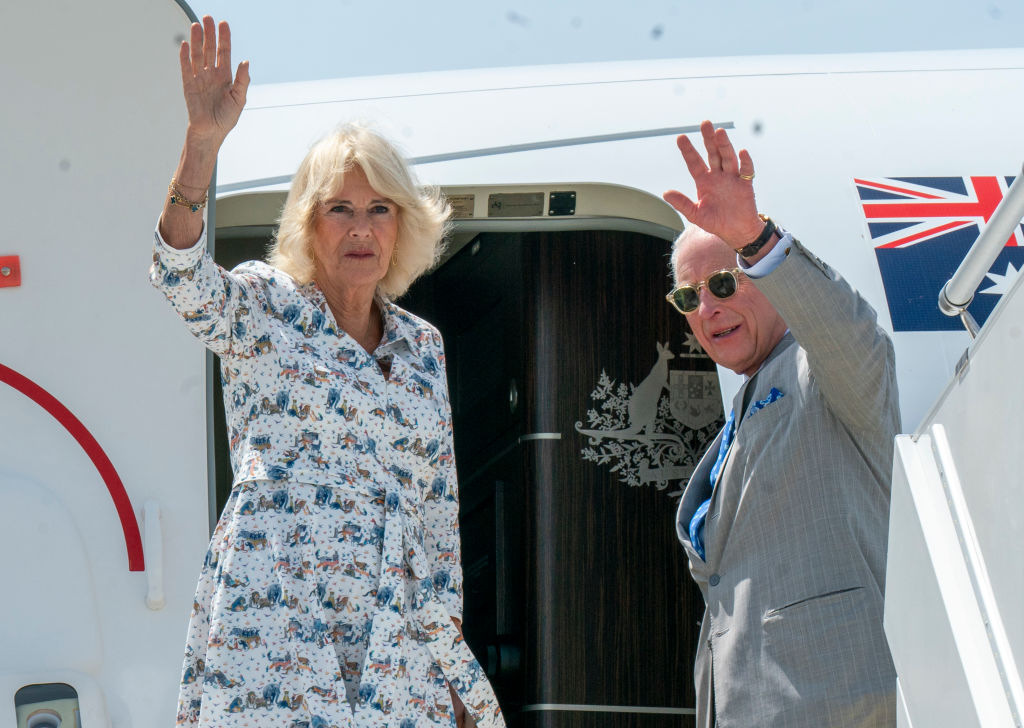The race to become the next secretary-general of the Commonwealth once again threatens to pitch transnational legitimacy against national sovereignty. Reporting this week suggests that the leading contenders for the senior post all support pressing Britain to pay reparations for its historic role in the Atlantic slave trade.
It is an ironic turn of events. Many Tory-leaning Brexiteers looked fondly on the Commonwealth as offering a vast and rich hinterland of international trade and cooperation, which Brexit Britain could substitute for a Napoleonic bloc in Europe tottering under the weight of its own arcane regulations. By contrast, the Commonwealth has the benefit of being more organically connected to British history, incorporating more dynamic and faster-growing nations than the sclerotic economies of Europe, and tying Britain to the old imperial dominions of Australia, Canada and New Zealand. These latter states would constitute the lynchpin of the CANZUK bloc, envisaged as a global Anglosphere alliance that would bind together the English-speaking, free-trading liberal democracies of the world.
Given that the culture wars developed in the Anglosphere, it is natural that the premier Anglophone transnational organisation in the world cannot escape the grievance-based politics of identity. Castigating the old imperial powers for their historic role in slavery offers a bottomless reservoir of moral authority for elites in poor developing countries — so many of which emerged from the ruins of the British Empire — with which to distract their populations from their own domestic failures, while dangling the remote prospect of reparations.
From the British perspective, though, to imagine that the European Union is the only transnational organisation to threaten our national independence is to misconceive the ways in which member-states have substituted for nation-states since the end of the Second World War. Membership of international organisations has been one of the key means by which governing elites have sought to repress domestic demands and popular expectations, citing permanent commitments to allies and institutions in place of old-fashioned diplomacy based on the national interest.
The Commonwealth was established in 1931. But it is no accident that its modern iteration of all countries being “free and equal” came into being in 1949, during the same era as other leading member-state organisations: the United Nations (1945), Nato (1949), the European Convention on Human Rights (1953), and of course the European Economic Community (1957), the forerunner of the EU itself.
The notion that the modern British nation bears any guilt or moral responsibility for slavery is ridiculous. Nonetheless, the reason transnational organisations such as the Commonwealth and the EU continue to function at all despite such manifestly absurd politics is because they are embedded within member-states, anchored in powerful constituencies which have a direct interest in deploying transnational authority to repress the popular demands of their fellow citizens. For the liberal professional classes in Britain and the wider West, the history of imperialism and slavery provides a means to delegitimise mass democracy as incorrigibly corrupted by racism. Now the Commonwealth will provide them with another prop to do this.
With increasing pressure for Britain to leave the ECHR, the recent Commonwealth ruckus shows that the battle over national sovereignty and transnational authority is far from over. Whatever the fond imaginings of Tory Brexiteers, the Commonwealth is in truth another decrepit legacy organisation of the 20th century, much like the EU and Nato.
Brexit Britain stands in a uniquely strong position to draw on the legitimacy conferred by its popular assertion of national sovereignty in 2016 to show that it can stand without needing the crutches of member-statehood used by other countries. The British Government should use the popular legitimacy conferred by Brexit to carve out a new kind of diplomacy and foreign policy, firmly rooted in the national interest rather than using membership of transnational organisations to bridle our national self-assertion.
Many critics of Brexit derided it as nostalgia for the British Empire. In truth, national sovereignty has always acted as a solvent of transnational and imperial rule, stretching back to Henry VIII’s break from the supranational authority of the Papacy in 1534. It would be entirely appropriate for us to continue this glorious British tradition by Brexiting from the decrepit globalist legacy of the British Empire itself.











Join the discussion
Join like minded readers that support our journalism by becoming a paid subscriber
To join the discussion in the comments, become a paid subscriber.
Join like minded readers that support our journalism, read unlimited articles and enjoy other subscriber-only benefits.
Subscribe